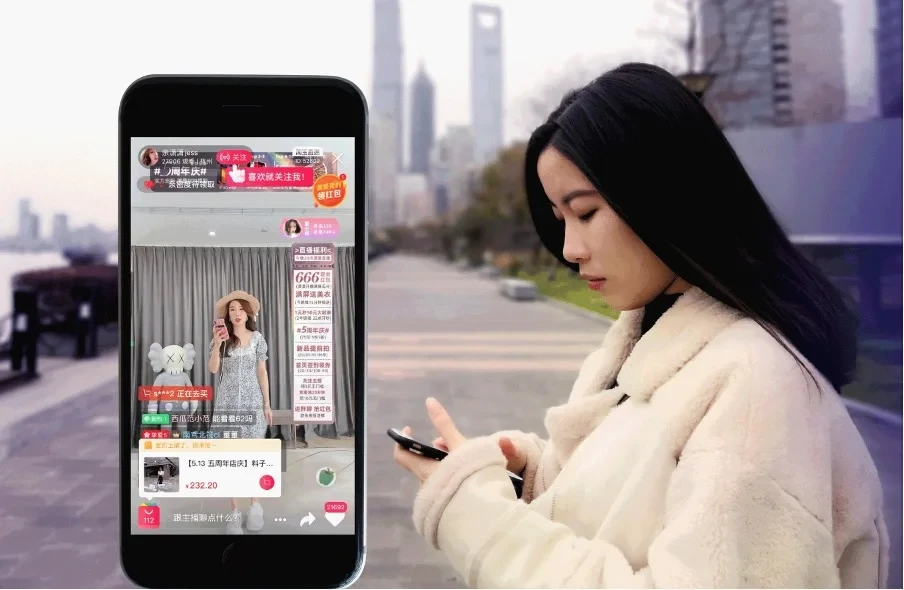While brick-and-mortar stores and siloed shopping experiences once reigned supreme in the retail landscape, we’ve entered a new era of retailing, driven by consumers who demand an interactive, personalised and connected shopping experience.
Determined to be more than just a number, today’s consumers are experience-driven, digital-hybrid natives seeking products and services customised to their life. No longer satisfied with a transaction, they crave an immersive, personalised journey that blends the physical and digital realm, thrilling and entertaining them across touchpoints and delivering ultimate convenience.
Enter omnichannel – the modern-day mode of retailing where physical stores, online platforms and mobile apps work as one, seamlessly delivering more convenient, enjoyable and personalised shopping experiences.
Today, the long shopping funnel that once stretched across multiple touchpoints has completely collapsed. While in the past consumers might have first seen a brand on a billboard, and only recall it weeks later while browsing physical aisles in-store, today’s journey can leap from brand discovery to instant purchase with just a click.
From siloed segmented experiences, where shopping was a chore burdened by a one-size-fits-all approach, today’s retail experience is a hybrid marvel. Seamlessly integrating online and offline worlds, omnichannel retail delivers unparalleled flexibility, choice and personalisation in a fun and entertaining experience. Customers can begin their shopping experience in any one place or channel, then effortlessly pick up where they left off on another channel, no matter where they are.
Omnichannel in the wild
These new experiences are already triggering sales growth, enhancing brand recognition, loyalty, and improving customer satisfaction – particularly in APAC, which stands proud as the fastest moving in the world in omnichannel retailing. Let’s take a walk-through three APAC omnichannel journeys in action:
Burberry: Amped up “social retail”
Luxury fashion house Burberry’s first “social retail” store in Shenzhen redefines the shopping experience. Setting the stage for digital magic, visitors are welcomed by an interactive “Living Sculpture”, and every item can be brought to life with a scan, revealing videos, runway showcases, and detailed insights into materials and colours.

The entire experience is underpinned by data, linked via WeChat’s all-in-one payment, loyalty and app ecosystem. Customers deepen their store interaction using Burberry’s WeChat mini-app, reserving spots at events or the café, commenting, and sharing user-generated content. This interactivity rewards users with social currency, allowing them to nurture a virtual Burberry mascot in a unique, gamified experience.
But what about “real-world” rewards? The in-app social currency extends in-store, unlocking exclusive, personalised experiences, from secret café menus to special access to the “Trench Experience” dressing room and private events. Each is designed to enhance the luxury shopping experience with a touch of exclusivity and Instagrammable moments, setting the benchmark for retail in the digital age.
Hema: Pioneer of new retail in China
Hema, Alibaba’s “new retail” supermarket, has shaken up the customer journey, seamlessly integrating online and offline interactions. Harnessing media-rich product discovery, customers now have more information at their fingertips than ever before. With one scan of a SKU in store, they can access a highly designed Product Detail Page, with visual storytelling. And then there’s the e-ink price tags on every shelf, displaying pricing to match online prices and promotions.

At Hema, merchandising is determined by Alibaba’s big data of the local neighbourhood. This translates into better products, more aligned with consumer preferences. Take Hema’s “Daily Fresh” product range, for example. Powered by digital commerce data and predictions, the product is strictly sold on shelves for 24 hours only and clearly advertises the day it was made, directly on pack.
Taking Chinese consumers’ desire for utmost freshness to the next level, shoppers can also pick their catch from the seafood tanks, while scanning for product info such as breed, provenance and cooking tips. Store clerks then help pick the catch live from the tanks, which you can instantly order to be cooked the way you want, by the in-store chef and kitchen.
Supercharging customer value, Hema has transformed from just a “supermarket” into a “social gathering place,” with dishes able to be enjoyed on the spot with friends and family in the sit-down restaurant section. Mobilising tech front-and-centre, robots also deliver your dish to your table, utilising the same technology that Alibaba uses in its warehouses to add some sprinkle to the in-store experience.
Taobao: The content king of marketplace platforms
Chinese online shopping platform Taobao has revolutionised shoppertainment, with over 130 live streaming channels on the Taobao app home page. Consumers engage in live conversations and games with trusted personalities through the Taobao Live integrated live chat function and win prizes while filling their cart.

The shopper experience at Taobao is not just functional, but entertaining, too. Taobao also offers virtual treasure hunts that unlock discounts and playful quizzes which reveal hidden gems. It’s a win-win: consumers get an adventure with every purchase, while brands reach new audiences, learn about preferences and position themselves as modern-day retail leaders.
And it’s a model that pays. During the 2023 Singles’ Day, 38 merchant-operated livestreaming channels generated over RMB100 million (US$13.9m) in Gross Merchandise Volume each.1
But why stop there? Harnessing full social commerce and media rich deep product storytelling, Taobao’s social media integration lets customers share reviews, recipes, and hauls. Meanwhile, merchants can link word of mouth from existing shoppers with new purchases. This builds a real-life buzz that creates organic virality, drives product discovery and is invaluable for brand engagement and community building.
It’s time for action
What does this new age of omnichannel retail mean for your brand? To apply APAC’s omnichannel innovations to your retail experience, consider how you can:
- Let your brand tell a story with deep product storytelling. See how you can link IRL shopping with product info online, which can be media-rich, immersive, and go beyond basic product specs.
- Go beyond loyalty cards and leverage personalisation to create unique shopping experiences. Beyond algorithm-powered recommendations, in 2024, this also includes content personalised to your shopping mission/profile, and facilitated 1-on-1 consultations.
- Get your game on and turn a simple shopping experience into a fun and engaging gaming experience. Think not just of the format of a traditional “game,” but interactivity through livestream hosting, and the treasure-hunt pleasures of shopping festival discounts.
- Explore innovative approaches that blend the physical and digital to create immersive experiences that keep customers coming back for more. Think how to incentivise the check-in, and embed physical spaces with Easter Egg functions, enabled online.
In the ever-evolving retail landscape, embracing omnichannel strategies is not a choice; it’s a must for sustained growth and relevance. Adapting and innovating within the omnichannel framework will not only enhance customer engagement and loyalty but solidify a retailer’s position as a trailblazer in modern commerce, setting them up for sustained relevance in the long run.
Source from SGK
Disclaimer: The information set forth above is provided by sgkinc.com independently of Alibaba.com. Alibaba.com makes no representation and warranties as to the quality and reliability of the seller and products.




